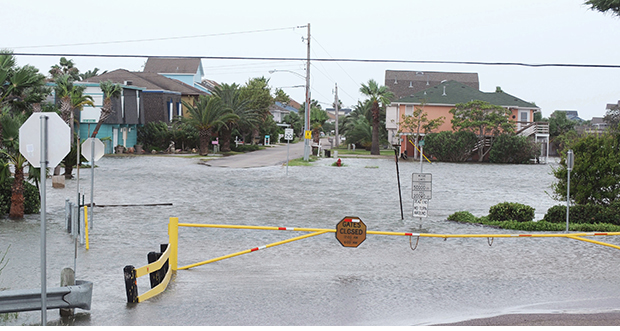TAMU hazard scientists team with Dutch to seek flooding solutions

Sam Brody
Texas A&M hazard mitigation researchers are partnering with their Dutch counterparts to combat a common enemy — flooding.
Last summer, academics from Texas A&M University and Delft University in The Netherlands developed a joint research agenda aimed at reducing flood-related vulnerabilities in their countries at a Delft conference co-coordinated by Sam Brody, professor of urban planning at Texas A&M.
“Findings from this research will guide the United States in its next generation of flood risk reduction policies,” said Brody, director of the Texas A&M Institute for Sustainable Coastal Communities, a research group dedicated to better understanding of establishing sustainable and resilient coastal communities, places and landscapes .
The institute combines resources from Texas A&M’s College of Architecture and Texas A&M University at Galveston, which co-hosted the July 22-25, 2013 conference with Delft University.
Reducing flood vulnerability in the U.S. is important because floods are the nation’s costliest and most deadly natural hazard, despite policy efforts to mitigate their impacts. Along the Texas Gulf Coast, rapid development and population growth has heightened the need to develop additional flood mitigation strategies to better safeguard human populations.
During the conference’s opening session, Brody and Wes Highfield, assistant professor of marine sciences at TAMUG, reviewed the history of flood risk management in the United States. Brody later discussed how the built environment influences flooding.
Additional conference topics included socioeconomic considerations in flood mitigation, storm surge modeling, the role of public perceptions in mitigating flood damage and surge barrier design.
Conference attendees also discussed the potential use of Dutch flood-risk reduction research methods and policies in the Texas Gulf Coast region as well as modeling, geospatial analysis, structural and non-structural flood mitigation techniques for the region.
The conference was attended by faculty and graduate students representing many disciplines, including coastal engineering, hydrology, marine science, economics and planning.
Next Post
Tags
- building a better texas
- coa gallery
- coastal systems
- environment
- events
- hazards
- hrrc gallery
- interdisciplinary
- landscape architecture & urban planning
- laup gallery
- partnerships
- planning
- research
- rss
- sustainability
Related Posts

Study eyes how lower Lake Conroe levels impact economy

HRRC marks 25th year championing resilience, planning

A&M researchers collaborate in U.S. resilience center

HRRC eying how disasters influence food distribution
Follow Us
Facebook Twitter Vimeo Youtube Flickr RSS
Recent Posts

Planning prof heads study of disaster housing aid

A message from the dean

Former student remembered as expert planner

Leading educator named new head of Architecture Dept.






_thumbnail_small.png)
